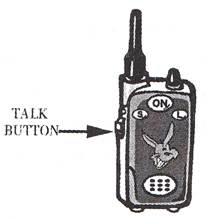The greatest source of inspiration for me has always been my father. Though he’s been gone for 17 years, his 21 still resonate(產(chǎn)生共鳴). He taught me how to run my own race in life. But the most inspiring thing he taught me was to 22 .
One incident is 23 in my mind. It happened when I was a teenager. My sister and I weren’t very fond of a so-called friend of 24 . Dad was a very generous man, and as he’d done with so many people, he’d given this fellow great help. But when he asked for a favor 25 , the guy didn’t deliver.
Dad’s outlook(人生觀)on most things was “Live and let live.” In this case, however, his calmness 26 Terre and me, and we let him know it.
“How can you be nice to that man?” we said to him. “You’ve been so kind to him, and he’s not being kind back. Why would you want to give him the time of day again?”
My father shrugged(聳肩)and said to us, “I do not bend my back with 27 . ”
I didn’t get it at first, but over the years I came to understand the 28 . Holding a grudge(怨恨)doesn’t 29 the person you’re angry with, but it changes you. It makes you heavier and gives you more weight to drag around.
After my father died in 1991, a (n) 30 came from a fellow I’d had a quarrel with years before to 31 his sympathy. He wrote: “I thought I’d tell you how sorry I am 32 the loss of your father. I know he 33 the world to you. I just wanted to let you know that you are in my thoughts. ”
Much moved, I wrote back. I thanked him for his 34 . And then, because he’d 35
our disagreement, I recalled Dad’s inspiring words. “I am my father’s daughter,” I wrote. “And like him, I do not bend my back with yesterday.”
| 【小題1】 | | A.lectures | B.suggestions | C.lessons | D.pictures |
|
| 【小題2】 | | A.forgive | B.persuade | C.forget | D.excuse |
|
| 【小題3】 | | A.vital | B.obvious | C.visual | D.vivid |
|
| 【小題4】 | | A.sister’s | B.mine | C.father's | D.mother’s |
|
| 【小題5】 | | A.in return | B.in turn | C.by return | D.by turn |
|
| 【小題6】 | | A.relaxed | B.moved | C.interrupted | D.bothered |
|
| 【小題7】 | | A.a(chǎn)nger | B.disappointment | C.worry | D.yesterday |
|
| 【小題8】 | | A.reason | B.word | C.philosophy | D.sentence |
|
| 【小題9】 | | A.change | B.hurt | C.upset | D.disturb |
|
| 【小題10】 | | A.news | B.letter | C.message | D.information |
|
| 【小題11】 | | A.explain | B.express | C.produce | D.present |
|
| 【小題12】 | | A.in | B.with | C.a(chǎn)bout | D.a(chǎn)t |
|
| 【小題13】 | | A.showed | B.represented | C.equaled | D.meant |
|
| 【小題14】 | | A.kindness | B.sympathy | C.understanding | D.consideration |
|
| 【小題15】 | | A.referred | B.mentioned | C.reminded | D.retold |
|

